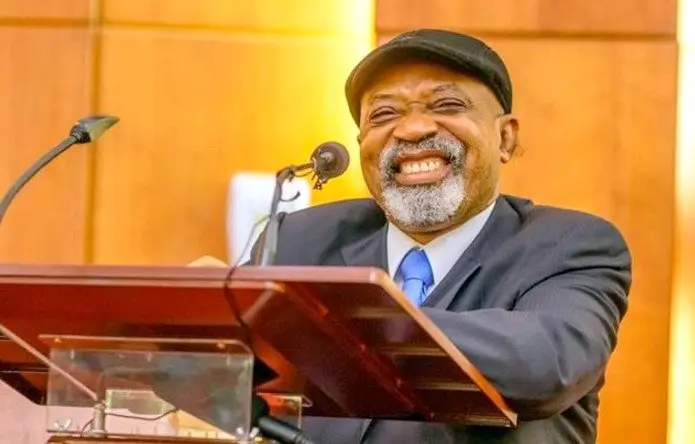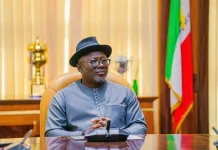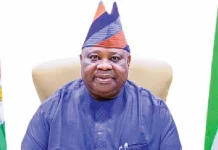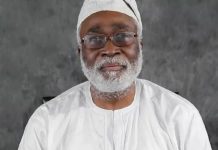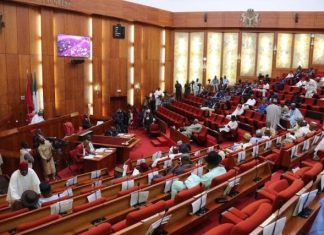A bill being considered by the National Assembly to stop Nigerian doctors from moving to what they believe to be better climates was deemed “unworkable” by the Federal Government on Monday.
After the extraordinary Federal Executive Council meeting, which was held at the State House in Abuja under the chairmanship of Vice President Yemi Osinbajo, Minister of Labour and Employment, Senator Chris Ngige, disclosed this while fielding questions from journalists.
Ngige said the bill violates current labor laws in response to a threat by resident doctors to go on a five-day warning strike over perceived attempts to imprison medical and dental graduates nationwide for five years before granting them a practicing license.
According to reports, the move will stop a mass exodus of medical professionals from the country, according to the bill’s sponsor, Lagos State representative and member of the House of Representatives Ganiyu Johnson.
Read Also: Amotekun kills 14-year-old boy by torturing him for his stepmother’s missing N500
The proposed legislation is known as “A Bill for an Act to amend the Medical and Dental Practitioners Act, Cap. M379, Laws of the Federation of Nigeria, 2004, to mandate any Nigeria-trained medical or dental practitioner to practice in Nigeria for a minimum of five years before being granted a full license by the Council to provide Nigeria with high-quality healthcare services; and for related matters.”
In response to the news, the Nigerian Association of Resident Doctors made plans to go on a five-day warning strike and vowed to fight any attempt to “enslave” Nigerian doctors.
In addition, they demanded the domestication of the Medical Residency Training Act, an immediate increase in the Consolidated Medical Salary Structure of 200 percent of the current gross salaries of doctors, the immediate implementation of CONMESS, and a review of the hazard allowance by all state governments as well as private tertiary health institutions where any form of residency training is done, among other things.
Nobody, according to Ngige, “can say they (doctors) won’t get a practicing license until after five years,” he added. It will go against the national laws that have governed the development of medical practice.
“Nobody can be prevented from obtaining a full license by the National Assembly’s bill. That bill was introduced by a private member. They deal with private member’s bills and executive bills in the National Assembly.
Governmental bills bearing the executive’s signature flow into the National Assembly.
“Either the President or the Attorney-General of the Federation, but usually the Attorney-General of the Federation, sends it. Consequently, it is a private member’s bill rather than an executive bill.
“That document, in my opinion, is not workable. I don’t support it now and I never will support it.
It’s like killing a fly with a sledgehammer, as I previously stated. If they want to stop the brain drain, they should come up with alternative methods.
The Minister claimed that the five-day strike was not necessary because the government was already in contact with the Nigerian Medical Association, the umbrella organization for NARD.
“On the demand for a 200% pay increase, the NMA is the parent organization of all doctors in Nigeria, and it has four or five affiliate associations, of which the resident doctors’ association is one.
Consequently, NMA is in discussions with the Federal Ministry of Health, the Salaries Income and Wages Commission, and the Ministry of Labour. As far as we are aware, NMA has agreed to a salary increase of between 25% and 30% for all of its members.
“I’m not sure why NMA members are now approaching me and demanding a 200% pay raise, so I don’t understand their reasoning.
“I don’t comprehend it. Since the government deals with NMA on matters of remuneration negotiation, I called the NMA President to get in touch with them. In order to engage them, I have instructed the NMA President to get in touch with them. He said that they shouldn’t strike because it wasn’t necessary.
Ngige added that the Employee Compensation Act of 2010 was approved for universal implementation by the Council as a result of a memo put forth by his ministry.
The law, he said, is administered by the Nigeria Social Insurance Trust Fund, and it will take the place of the previous Employee Compensation Act, also known as Workmen Compensation.
Ngige stated that the Council had approved the ECA for widespread implementation, which “means that, aside from the private sector, which is already implementing, the public sector, which is government; federal, state, and local governments, now have to adopt this for the protection of their workers.”
According to the Act, a worker who is hurt on the job, has an accident, contracts a disease, becomes disabled, or dies while working should receive compensation and remuneration, and even his family should receive payment.
Some of the children were not given the opportunity to attend school or receive an education until the age of 21.
“So today is a good day for Nigerian workers because the ILO’s Convention 102, which promotes decent work, has a significant section on what they refer to as workers’ protection in the course of work,”
Join Television Nigerian Whatsapp Now
Join Television Nigerian Facebook Now
Join Television Nigerian Twitter Now
Join Television Nigerian YouTUbe Now

